 |
| Kaʻū Coffee Mill submitted testimony to the Hawai'i Legislature this session urging truth in labeling to protect 100 percent Kaʻū Coffee from branders who mislead buyers. Photo from Kaʻū Coffee Mill |
"As the signature agricultural product produced in this state, why don’t the coffee farmers and our product have the same protection from the State of Hawaii as Idaho potatoes, Vermont Maple Syrup, California Almonds? I don’t think I could taste 10% of Vermont Maple Syrup and I certainly would not buy a watered down version of any product. If I was duped into buying such a product under false labeling practices I would never buy or trust any product coming out of that geographical region again.
"At the end of the day, it is the blood, sweat and tears of the coffee farmer that has built the Hawai'i coffee industry, not the blender or the hotels that push 10% blends on unsuspecting visitors. Who is reaping the economic benefit of such practices? I assure you it is not the hard-working farmers who produce some of the world’s finest coffee."
See more testimony on honest coffee labeling that went to House and Senate in the Feb. 21 Kaʻū News Briefs at http://kaunewsbriefs.blogspot.com/2023_02_21_archive.html.
Kaʻū's representative in the House, Jeanné Kapela, was an author of the bill. Kaʻū's Sen. Dru Kanuha was an author of the bill in the Senate.
SCIENCE CAMPS OF AMERICA HAS ANNOUNCED SCHOLARSHIP OPENINGS for its Pāhala program this July. Two full scholarships are available exclusively for Kaʻū students: One is provided by Edmund C. Olson Trust and one is courtesy of Gary and Apolonia Stice ʻOhana. "Their generous gifts will pay the full registration fee for a student from Kaʻū who will be entering grades 8-12 in the fall. Additional partial scholarships are also available," said Science Camps of America founder Mike Richards. "Hawaiʻi Island is the classroom, with exploration spanning the magnificent forests, shores, and mountains. . Land & Sea Camp from July 1 to 10 is one of two science camps held in Pāhala each year by Science Camps of America. The other is Air & Space from July 11 through 20. Teens can attend one or both of the sleepaway camp sessions. This summer, Science Camp for Teens is celebrating its 10th year in Pāhala.
. Land & Sea Camp from July 1 to 10 is one of two science camps held in Pāhala each year by Science Camps of America. The other is Air & Space from July 11 through 20. Teens can attend one or both of the sleepaway camp sessions. This summer, Science Camp for Teens is celebrating its 10th year in Pāhala.
Students can get hands-on with geology, forestry, marine biology, environmental engineering, and ecosystems during Land & Sea Camp. They can investigate the atmosphere, climate, astronomy, planetary science, aerospace engineering, and space exploration during Air & Space Camp. "Either way, teens will make lifelong connections with campers from around the globe as science becomes an adventure," said Richards.
Apply online by visiting
Kaʻū's representative in the House, Jeanné Kapela, was an author of the bill. Kaʻū's Sen. Dru Kanuha was an author of the bill in the Senate.
To read comments, add your own, and like this story, see facebook.com/kaucalendar. See latest print edition at kaucalendar.com, in the mail and on stands.
KAʻŪ'S U.S. SENATOR MAZIE HIRONO ISSUED SUPPORT FOR JULIE SU, Pres. Joe Biden's nomination for U.S. Secretary of Labor. In a statement released Thursday, Hirono said, "Throughout her career, Deputy Secretary Su has been a strong and effective champion for working people, fighting to
combat wage theft, create jobs and ensure workers are treated with the dignity and respect they deserve. For the past two years, Deputy Secretary Su has played a critical role at DOL, working closely with Secretary Walsh to build a more inclusive economy that provides every American with the opportunity to succeed."
 |
| Julie Su receives support from Sen. Mazie Hirono to be confirmed as U.S. Secretary of Labor. |
With confirmation by the U.S. Senate, Su will be the first American Asian Pacific Islander Cabinet-level Secretary in the Biden Administration, "bringing critical diversity and lived experience to DOL and this Administration. President Biden has shown his continued confidence in Deputy Secretary Su and I look forward to voting to confirm her as quickly as possible so she can continue building on this Administration’s record of standing with working people and ensuring no community is left behind,” said Hirono.
Before joining U.S. Department of Labor, Su was Labor Secretary for California. She has a degree from Stanford University and a law degree from Harvard. She is known for leading the El Monte Garment Slavery Case, which led to the T-Visa for victims of human trafficking. Like Hirono, she is from an immigrant family.
To read comments, add your own, and like this story, see facebook.com/kaucalendar. See latest print edition at kaucalendar.com, in the mail and on stands.
A HIGH WIND ADVISORY AND HIGH SURF WARNING FOR KAʻŪ are in effect. Civil Defense reports that high winds could be here through Wednesday and high surf through Thursday. The National Weather Service issued the High Surf warning down east facing shores of Hawai'i Island to South Point. Civil Defense warns: "Very strong breaking waves and powerful currents will make swimming dangerous and life-threatening. Beach-goers, swimmers, and surfers should heed all advice given by ocean safety officials; when in doubt, don't go out. Be aware that beaches may close without notice."
To read comments, add your own, and like this story, see facebook.com/kaucalendar. See latest print edition at kaucalendar.com, in the mail and on stands.
 . Land & Sea Camp from July 1 to 10 is one of two science camps held in Pāhala each year by Science Camps of America. The other is Air & Space from July 11 through 20. Teens can attend one or both of the sleepaway camp sessions. This summer, Science Camp for Teens is celebrating its 10th year in Pāhala.
. Land & Sea Camp from July 1 to 10 is one of two science camps held in Pāhala each year by Science Camps of America. The other is Air & Space from July 11 through 20. Teens can attend one or both of the sleepaway camp sessions. This summer, Science Camp for Teens is celebrating its 10th year in Pāhala. Students can get hands-on with geology, forestry, marine biology, environmental engineering, and ecosystems during Land & Sea Camp. They can investigate the atmosphere, climate, astronomy, planetary science, aerospace engineering, and space exploration during Air & Space Camp. "Either way, teens will make lifelong connections with campers from around the globe as science becomes an adventure," said Richards.
Apply online by visiting
To read comments, add your own, and like this story, see facebook.com/kaucalendar. See latest print edition at kaucalendar.com, in the mail and on stands.
CONSCIOUS COMMERCE is the topic on Thursday and Friday, March 9 and 10 for the in-person Teamwork, Leadership and Preparing for the New Economy Training Serices. It runs for two days at University of Hawai'i at Hilo, UCB 127 at 200 W. Kawilli St. It is free and sponsored by Ku'ikahi Mediation Center.
Leader of the two-day workshop is Sylvia Dolena, who said, "In today's world, entrepreneurs need to be aware of local and global environmental issues. "How can you retool or re-envision a business in our post-pandemic world? Learn a process to go from idea to business plan for small business startups or businesses that must reinvent themselves for a new economy."
Entrepreneurs can learn how to: Align passion and purpose to livelihood; identify and overcome obstacles to success; create vision and mission; create a sustainable business plan; envision a small carbon footprint; build a success and support team; and propose and sell ideas.
Dolena worked for Hewlett-Packard (HP) for 18 years, as a Global Programs and Operations Manager and Strategic Change Project Manager. She has worked as an external business consultant with HP and other high-tech and retail companies like AMD and Best Buy. Recently, Dolena was a Project Manager for one Fortune 100 Company's new Leadership Certification Program. She delivers workshops and leadership development programs in Hawai'i and nationally. She holds an MBA in Organizational Effectiveness from University of Southern California and an MS in Strategic Management of Technology Organizations from Stanford and IESE, the European School of Business in Barcelona.
To register for this free in-person training, visit https://consciouscommerce.eventbrite.com or contact Ku'ikahi Mediation Center at (808) 935-7844 or info@hawaiimediation.org
This Training Series is made possible thanks in part to funding from the Atherton Family Foundation, County of Hawaiʻi, and Hawai'i Island United Way, and in partnership with University of Hawai'i at Hilo.
REMEMBERING OUR HANABATA DAYS is the theme of the 2023 reunion for graduates and friends of alumni of Kaʻū schools. The event dates are Oct. 27 and 28 in Las Vegas at the California Hotel, where special rates for rooms and food have been arranged for four nights within the Oct. 25-31 window, with the opportunity to reserve additional nights. Reserve rooms no later than Sept. 25 by calling 888-715-0711.
Volcano Evening Market, Cooper Center, Volcano Village, Thursdays, 3 p.m. to 6 p.m., with live music, artisan crafts, ono grinds, and fresh produce. See facebook.com.
Volcano Swap Meet, fourth Saturday of the month from 8 a.m. to noon. Large variety of vendors with numerous products. Tools, clothes, books, toys, local made healing extract and creams, antiques, jewelry, gemstones, crystals, food, music, plants, fruits, and vegetables. Also offered are cakes, coffee, and shave ice. Live music. Volcano Farmers Market, Cooper Center, Volcano Village on Sundays, 6 a.m. to 10 a.m., with local produce, baked goods, food to go, island beef and Ka'ū Coffee. EBT is used for Supplemental Nutrition Assistance Program, formerly Food Stamps. Call 808-967-7800.
O Ka'ū Kākou Market, Nā'ālehu, Wednesdays, 8 a.m. to 2 p.m. Contact Nadine Ebert at 808-938-5124 or June Domondon 808-938-4875. See facebook.com/OKauKakouMarket.
Ocean View Community Market, Saturdays and Wednesdays, 6:30 a.m. to 2 p.m., corner Kona Dr. Drive and Hwy 11, near Thai Grindz. Masks mandatory. 100-person limit, social distancing required. Gate unlocked for vendors at 5:30 a.m., $15 dollars, no rez needed. Parking in the upper lot. Vendors must provide their own sanitizer. Food vendor permits required. Carpooling is encouraged.
CONSCIOUS COMMERCE is the topic on Thursday and Friday, March 9 and 10 for the in-person Teamwork, Leadership and Preparing for the New Economy Training Serices. It runs for two days at University of Hawai'i at Hilo, UCB 127 at 200 W. Kawilli St. It is free and sponsored by Ku'ikahi Mediation Center.
Leader of the two-day workshop is Sylvia Dolena, who said, "In today's world, entrepreneurs need to be aware of local and global environmental issues. "How can you retool or re-envision a business in our post-pandemic world? Learn a process to go from idea to business plan for small business startups or businesses that must reinvent themselves for a new economy."
Entrepreneurs can learn how to: Align passion and purpose to livelihood; identify and overcome obstacles to success; create vision and mission; create a sustainable business plan; envision a small carbon footprint; build a success and support team; and propose and sell ideas.
Dolena worked for Hewlett-Packard (HP) for 18 years, as a Global Programs and Operations Manager and Strategic Change Project Manager. She has worked as an external business consultant with HP and other high-tech and retail companies like AMD and Best Buy. Recently, Dolena was a Project Manager for one Fortune 100 Company's new Leadership Certification Program. She delivers workshops and leadership development programs in Hawai'i and nationally. She holds an MBA in Organizational Effectiveness from University of Southern California and an MS in Strategic Management of Technology Organizations from Stanford and IESE, the European School of Business in Barcelona.
To register for this free in-person training, visit https://consciouscommerce.eventbrite.com or contact Ku'ikahi Mediation Center at (808) 935-7844 or info@hawaiimediation.org
This Training Series is made possible thanks in part to funding from the Atherton Family Foundation, County of Hawaiʻi, and Hawai'i Island United Way, and in partnership with University of Hawai'i at Hilo.
To read comments, add your own, and like this story, see facebook.com/kaucalendar. See latest print edition at kaucalendar.com, in the mail and on stands.
REMEMBERING OUR HANABATA DAYS is the theme of the 2023 reunion for graduates and friends of alumni of Kaʻū schools. The event dates are Oct. 27 and 28 in Las Vegas at the California Hotel, where special rates for rooms and food have been arranged for four nights within the Oct. 25-31 window, with the opportunity to reserve additional nights. Reserve rooms no later than Sept. 25 by calling 888-715-0711.
One of the organizers, Joe Tateyama, said that ahead of the trip, alumni are invited to send in photos "that will stir up memories" of the schools in Pāhala and Nā'ālehu to kayyonemori@yahoo.com. For more contact Sharon (Yoshimura) Okino at shsokino@yahoo.com or Joe Tateyama at joetat@hotmail.com.
To read comments, add your own, and like this story, see facebook.com/kaucalendar. See latest print edition at kaucalendar.com, in the mail and on stands.
PUBLIC GRAND OPENING OF KE OLA PU'UHONUA adjacent to Punalu'u Bakeshop in Na'alehu is this Saturday, March 4, 10 a.m. to 2 p.m. The public and 'ohana are invited for a cultural experience featuring a hula performance by Halau Hula O Leionalani at noon, music, hands on teachings by such living treasures as Uncle Chucky Leslie with his fisheries; Kupuna Linda Saffery with her lauhala and makaloa weaving; Kupuna Bully Davies with coconut weaving; and Uncle Waltah Wong with his traditional hale and more. Uhane Pohaku Na Moku O Hawai'i, Inc. will serve free hot dogs and juice from 11 a.m. to 2 p.m. for all guests. The organization is headed by Kawehi Ryder and Kumu Hula Debbie Ryder.
To read comments, add your own, and like this story, see facebook.com/kaucalendar. See latest print edition at kaucalendar.com, in the mail and on stands.
FREE FOOD
St. Jude's Hot Meals are free to those in need on Saturdays from 9 a.m. until food runs out, no later than noon. Volunteers from the community are welcome to help and can contact Karen at pooch53@gmail.com. Location is 96-8606 Paradise Circle Drive in Ocean View. Those in need can also take hot showers from 9 a.m. to noon and use the computer lab from 9:30 a.m. to 1 p.m.
Free Meals Mondays, Wednesdays, and Fridays are served from 12:30 p.m. to 3:30 p.m. at Nā'ālehu Hongwanji. Volunteers prepare the food provided by 'O Ka'ū Kākou with fresh produce from its gardens on the farm of Eva Liu, who supports the project. Other community members also make donations and approximately 150 meals are served each day, according to OKK President Wayne Kawachi.
OUTDOOR MARKETS
St. Jude's Hot Meals are free to those in need on Saturdays from 9 a.m. until food runs out, no later than noon. Volunteers from the community are welcome to help and can contact Karen at pooch53@gmail.com. Location is 96-8606 Paradise Circle Drive in Ocean View. Those in need can also take hot showers from 9 a.m. to noon and use the computer lab from 9:30 a.m. to 1 p.m.
Free Meals Mondays, Wednesdays, and Fridays are served from 12:30 p.m. to 3:30 p.m. at Nā'ālehu Hongwanji. Volunteers prepare the food provided by 'O Ka'ū Kākou with fresh produce from its gardens on the farm of Eva Liu, who supports the project. Other community members also make donations and approximately 150 meals are served each day, according to OKK President Wayne Kawachi.
OUTDOOR MARKETS
-1.jpg) |
| https://www.okaukakou.org/scholarships -for-local-students |
Volcano Swap Meet, fourth Saturday of the month from 8 a.m. to noon. Large variety of vendors with numerous products. Tools, clothes, books, toys, local made healing extract and creams, antiques, jewelry, gemstones, crystals, food, music, plants, fruits, and vegetables. Also offered are cakes, coffee, and shave ice. Live music. Volcano Farmers Market, Cooper Center, Volcano Village on Sundays, 6 a.m. to 10 a.m., with local produce, baked goods, food to go, island beef and Ka'ū Coffee. EBT is used for Supplemental Nutrition Assistance Program, formerly Food Stamps. Call 808-967-7800.
O Ka'ū Kākou Market, Nā'ālehu, Wednesdays, 8 a.m. to 2 p.m. Contact Nadine Ebert at 808-938-5124 or June Domondon 808-938-4875. See facebook.com/OKauKakouMarket.
Ocean View Community Market, Saturdays and Wednesdays, 6:30 a.m. to 2 p.m., corner Kona Dr. Drive and Hwy 11, near Thai Grindz. Masks mandatory. 100-person limit, social distancing required. Gate unlocked for vendors at 5:30 a.m., $15 dollars, no rez needed. Parking in the upper lot. Vendors must provide their own sanitizer. Food vendor permits required. Carpooling is encouraged.







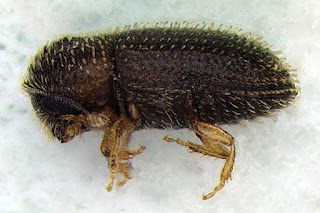
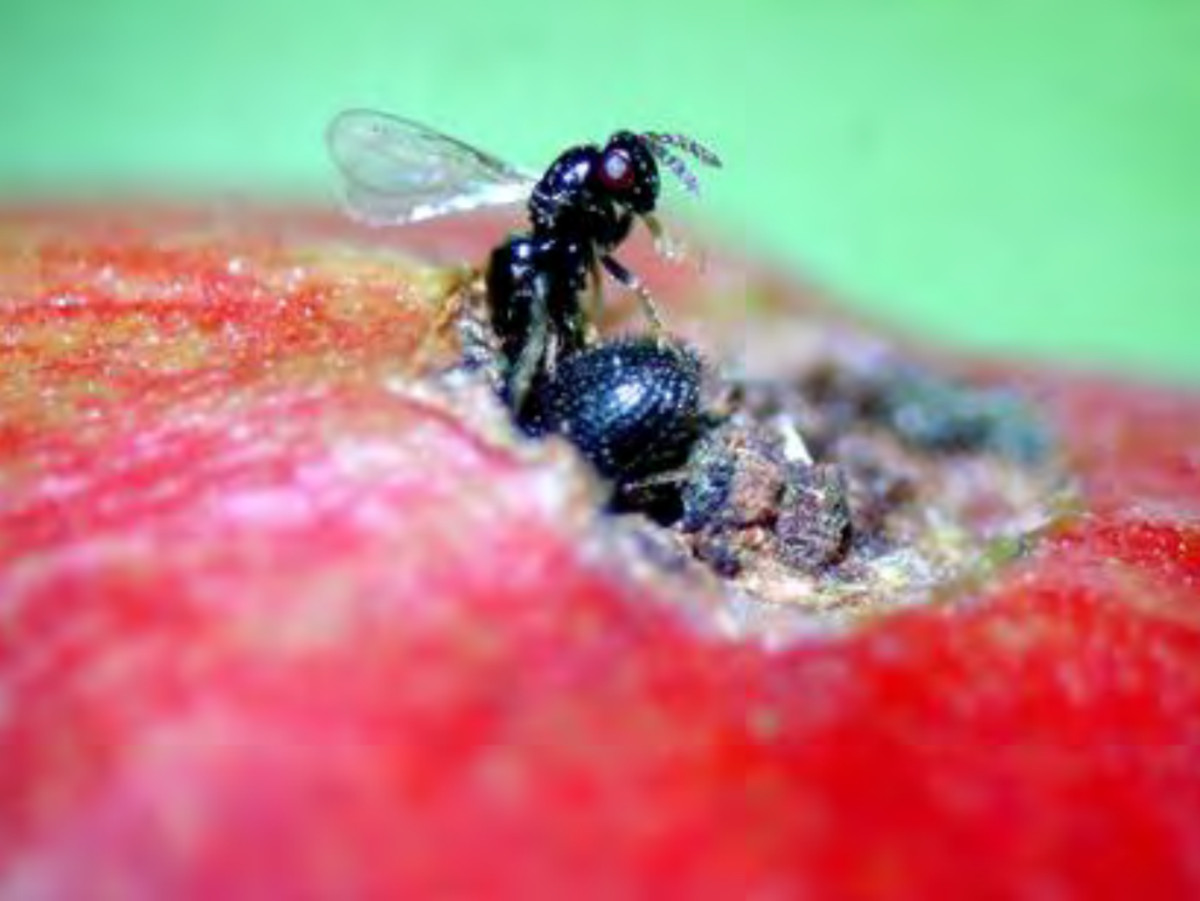


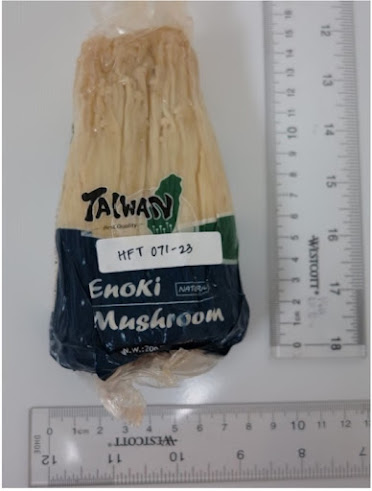
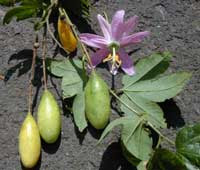

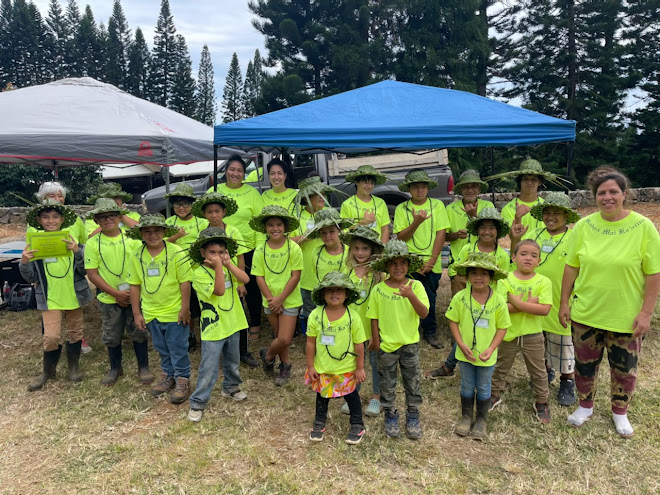
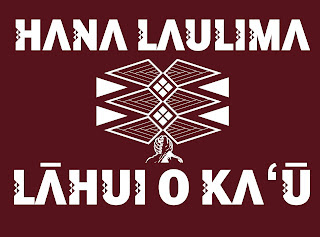


.jpeg)







-1.jpg)
